The study or area of practice of industrial hygiene can be an area of discomfort or unfamiliarity for safety professionals. For those who achieve a bachelor’s degree or higher, it is often a part of the curriculum, but for those who do not study in a college degree program, they frequently miss this.
Industrial hygiene is the science of protecting the health and safety of workers by anticipating, recognizing, evaluating, and controlling workplace hazards. It involves identifying and managing environmental stressors that could cause harm to employees. The types of hazards addressed by industrial hygiene include the following:
Chemical Hazards – Exposure to harmful chemicals in various forms (liquids, gases, solids, fumes, dusts, mists, vapors).
Physical Hazards – Factors like heat, cold, noise, radiation, and vibration that can affect workers’ health.
Biological Hazards – Exposure to microorganisms like bacteria, viruses, and fungi that can cause infections.
Ergonomic Hazards – Conditions related to the physical demands of the job, such as lifting, repetitive motions, and awkward postures, that can lead to musculoskeletal disorders.
Air Contaminants – Particles and gases in the air that can be inhaled and cause respiratory problems or other health issues.
It is not my feeling that the average safety professional needs to be an expert in industrial hygiene, but to do the job properly and protect workers, I believe there must be a good familiarity with the principles. The reason for this is that a safety professional must have a sufficient understanding of environmental stressors to identify hazards and call in experts. I am not saying that a safety professional must be familiar with all the different means and methods of sampling or even have the ability to review complex exposure data. Still, they need to know what a hazard looks like to gauge exposure and protect workers.
In my travels, I have recognized many safety professionals who dive deep into the practice of industrial hygiene and become very familiar with both assessments and solutions to hazards. It is a fascinating area of practice and can be incredibly interesting. It can also be an area of fear since it is complex and often scientific.
The point that I want to make is that all safety professionals, even front-line specialists, need to have some level of awareness and education in industrial hygiene. Not unlike the need for a safety professional to become comfortable with technology or the ability to communicate in written form, industrial hygiene is an area that requires attention from safety professionals if they plan to be both well-rounded and effective in their jobs.

 EMPLOYEE LOGIN
EMPLOYEE LOGIN



